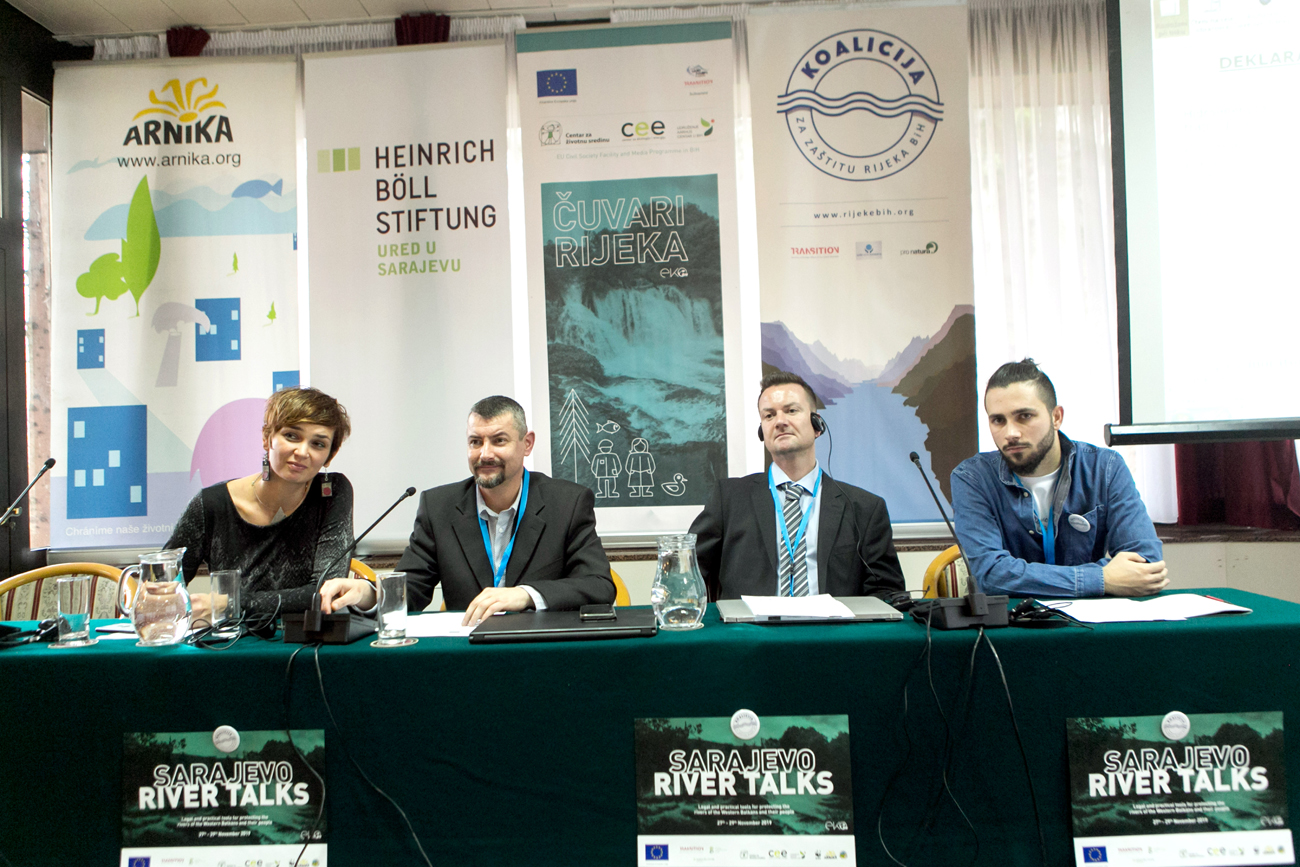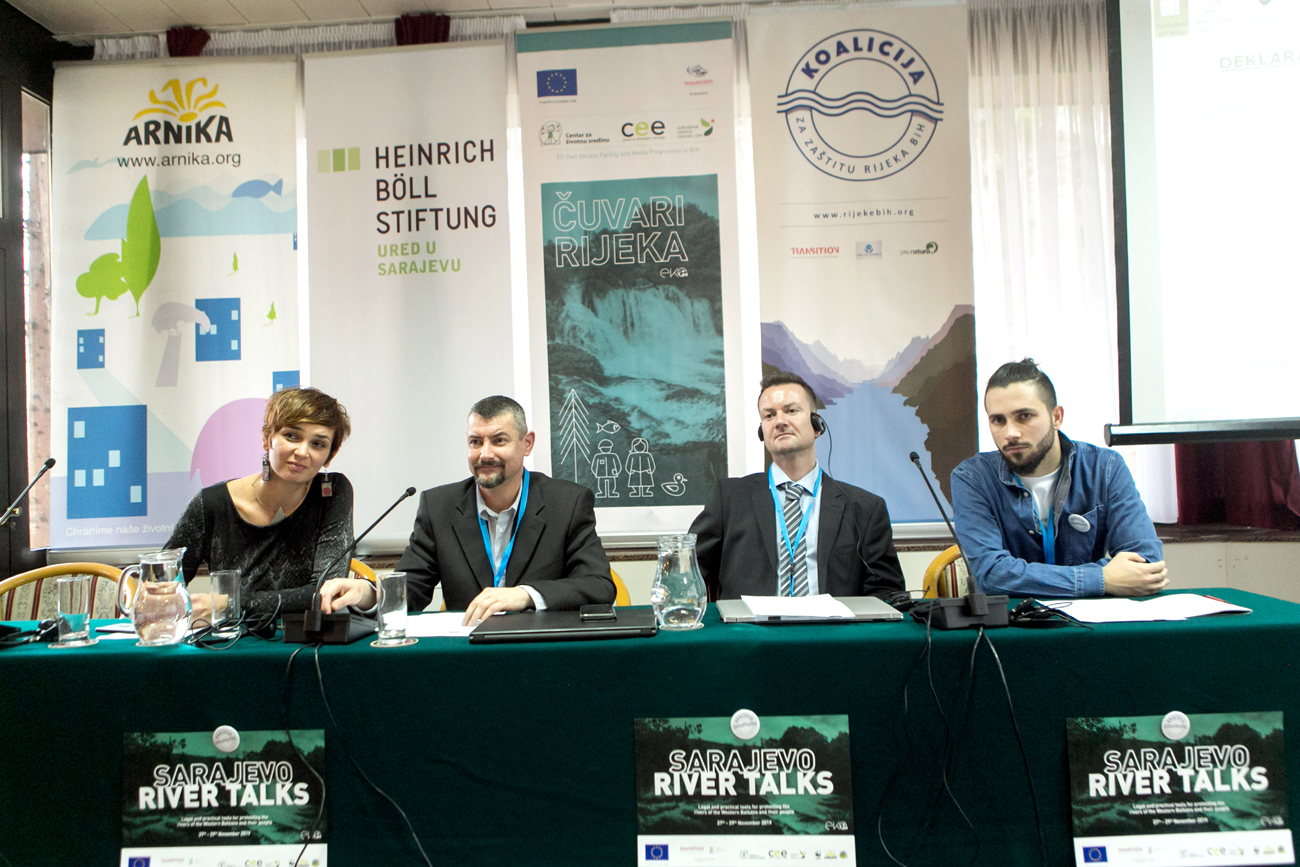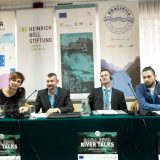On November 28, 2019, a joint declaration on the protection of Western Balkan rivers has been drafted by participants in the International River Conference on “Legal and practical tools for protecting the rivers of the Western Balkans and their people”. The conference was organised by Arnika (Czech Republic), the Center for Environment (Bosnia and Herzegovina), and WWF Adria thanks to financial support from the European Union, the Transition Promotion Programme of the Czech Republic, the Global Greengrants Fund and the Heinrich-Böll Stiftung. The participants appeal for environmental democracy and compliance with national law, EU legislation and international conventions.
The Natura 2000 and Emerald networks of protected areas must be respected when considering the use of wild rivers. Also, the Western Balkan countries must adopt effective environmental legislation, for example on minimal residual river flow. The governments must provide the people with access to information and the right to participate in decision making – and take their comments into account, states the Declaration on the Protection of Rivers in the Western Balkans.
“[We] support the initiatives to contact the relevant public authorities with a request to declare a moratorium on the construction of hydropower plants and to carry out a revision of all the strategies/plans/programmes that have been adopted and other policy documents that directly and indirectly affect the sustainable management of our rivers and, in the repeated proceedings, organize quality strategic environmental assessments in accordance with the regulations,” agreed the participants in the conference, including Ana Čolović Lesoska, a 2019 Goldman Prize Recipient for defending the oldest and largest North Macedonian Mavrovo National Park from planned hydropower project.
“The declaration is a breakthrough in the struggle for the protection of rivers in the Western Balkans,” says Martin Skalský, Head of the Arnika Association. “Rivers and their ecosystems are endangered as a result of plans to build a large number of hydropower plants on them. All of these plans should be re-examined on the basis of more in-depth information and public participation. Hydropower is presented as clean energy, but the construction and use of hydropower causes permanent damage to the environment and the local people,” he adds.
According to Viktor Bjelić, Vice-President of the Center for Environment, projects must be considered under national and EU environmental legislation, including the Water Framework Directive, the Habitats Directive, the Birds Directive and the Environmental Impact Assessment Directive: “Expanding existing protected areas and establishing new ones to include water bodies and expanding and developing an effective network of protected areas with ecological corridors with a prior scientific evaluation of their natural value will foster the sustainable development of these areas, raise awareness and increase the cooperation of local communities and bring the Western Balkan countries closer to the European NATURA 2000 network,” he suggests.
“We don’t have to overexploit our natural heritage for the profit of a few people or private companies. There are sustainable alternatives. Sport, tourism, water supply and traditional uses of rivers would create more job opportunities and generate more revenue for local communities,” stated Irma Popović Dujmović from WWF Adria.
Participants from Bosnia and Herzegovina, Croatia, the Czech Republic, Albania, Montenegro, Serbia and North Macedonia are discussing legal and practical tools for protecting the rivers of the Western Balkans and their people facing the current hydropower plant boom this week at Hotel Grand Sarajevo.
The conference hears often startling stories of local people in cases such as Kruščica and Doljanka rivers (Bosnia and Herzegovina), Stara Planina rivers (Serbia) or Bukovica and Tara rivers (Montenegro). Similar struggles have hit one of Europe’s most valuable rivers, the Vjosa in Albania. Over 300 unnecessary dams are planned to block 244 rivers in Bosnia and Herzegovina alone and up to 2700 in the wider Balkan region. Successfully-ending campaigns, as well as ongoing ones, are presented at the conference, which will wind up on Friday with workshops for environmental activists.












